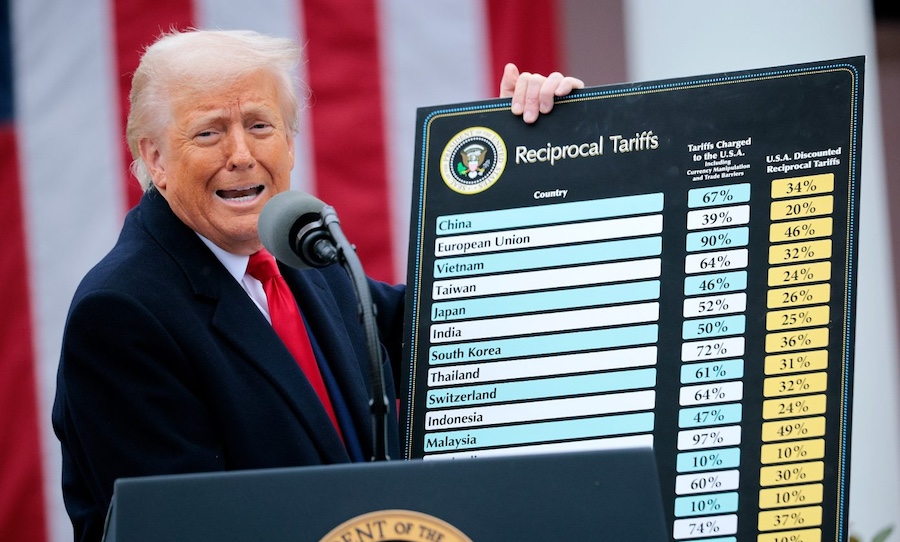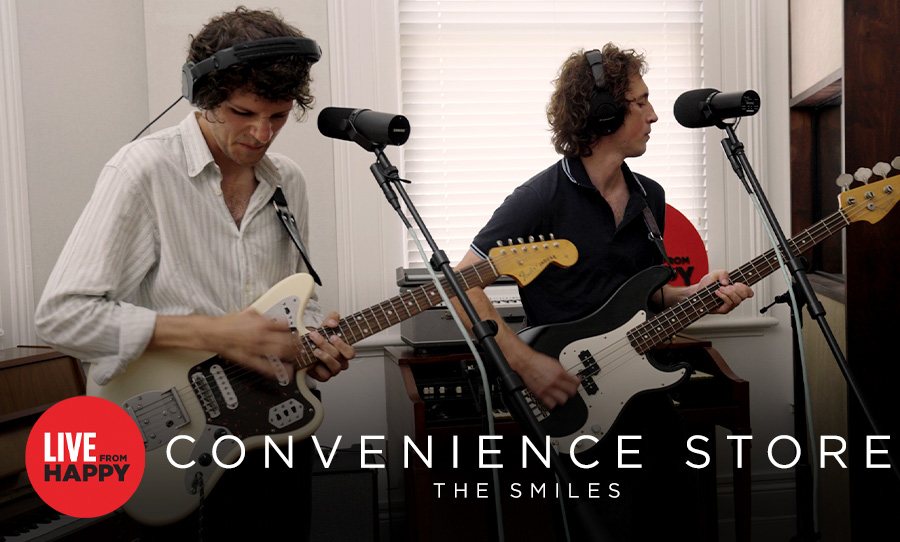Trump’s trade tune hits a sour note: Tariffs crash music stocks and could make concerts more expensive
The live music industry is reeling after former President Donald Trump’s sweeping new tariffs triggered a dramatic stock market downturn, with major companies across the sector seeing double-digit losses.
The ripple effects are being felt from concert promoters to instrument manufacturers, with warnings of long-term damage to an already fragile music economy.

The crisis began when Trump announced steep new import taxes last Wednesday, hitting 54% on Chinese goods and significant tariffs on products from Vietnam, Japan and other nations.
While framed as a move to “make America wealthy again,” the immediate aftermath saw U.S. markets experience their worst day since COVID, with music stocks among the hardest hit. Live entertainment giants bore the brunt of the selloff – Sphere Entertainment, fresh off hosting U2’s groundbreaking Las Vegas residency, plummeted nearly 14%, while industry leader Live Nation saw significant declines.
Radio broadcasters iHeartMedia and SiriusXM both dropped over 10%, and podcast platforms weren’t spared either, with LiveOne sinking 13%.
Behind the stock market turmoil lies a more insidious threat to music’s ecosystem. Brian Fair, frontman of Shadows Fall and an executive at major instrument distributor St. Louis Music, offered a grim firsthand account of the tariffs’ impact. “Our landing costs have skyrocketed,” Fair revealed, explaining how price increases will inevitably trickle down to consumers.
He painted a dire picture for already-struggling local music stores, many operating on razor-thin margins, now facing impossible choices about passing costs to customers. The irony isn’t lost on observers – while promoting American manufacturing, Trump’s own signature “MAGA” guitar line was revealed to be produced in China, highlighting the industry’s entrenched global supply chains.

Recorded music companies proved more resilient, with Universal Music Group and Warner Music Group experiencing only modest dips, while Spotify remained largely unaffected. But for the live sector and instrument trade, the road ahead looks precarious. Fair warns of a permanent market shift, noting that “once prices go up, they don’t come down,” regardless of whether manufacturers are affected by the tariffs.
As the industry scrambles to adapt, the full consequences remain uncertain – from more expensive concert tickets to fewer music stores surviving the squeeze.
One thing is clear: in an industry still recovering from pandemic losses, these tariffs may strike the wrong chord at the worst possible time.



